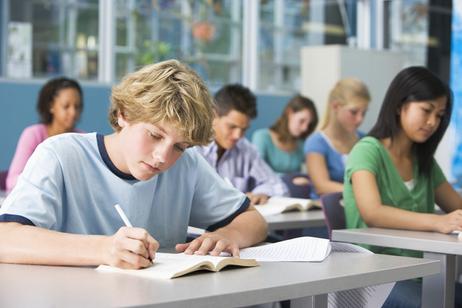Thirty years ago, cell phones were expensive and underpowered. The only thing you could do with them was dial a number to speak with someone. Cell phones have morphed into high-powered devices called smartphones. They can make calls, text messages, take photos with one or two cameras, play music, and much more. As a result, cell phones, or rather, smartphones, can be both a useful tool and a distraction in school. Cell Phones In The Classroom: Learning Tool or Distraction outlines the issue facing teachers and administrators alike. The big advantage of allowing cell phones in the classroom is that the school doesn't have to build any local infrastructure. In other words, you don't have to wire buildings and set up servers to support students' and administrators' cell phones. The cell phone service provider takes care of all of that. Teachers can routinely deliver information and content via students' smartphones easily and conveniently.
Endless possibilities for good
40 Simple Ways To Use A Smartphone In The Classroom lists just some of the things you can do with a smartphone in the classroom. As an old teacher, I particularly like that you can use that one device to meet students at their own level. Yes, many students will spend endless hours gaming on their smartphones. But, most of the time, those gamers are the young people who will accept your challenge of designing an app for a specific purpose in your classroom. They understand the parameters for a successful app. They know how it should look and perform. You have to challenge them to write that app you need to enhance your teaching and their learning.
This video illustrates some of the possibilities for smartphones in the classroom.
What about the shy student who spends much of her time listening to music? You can set her an assignment of researching other forms of music and, in the process, open her ears and eyes to whole new musical worlds. You see, using smartphones as a research tool is one of the most important things you can teach your students to do. Speedreading is another important thing you must teach your students, but I digress. Teaching your students to distinguish between fact and fiction when they search the internet is critically important to developing analytical thinking.
Smartphones allow instant communication between teacher and student, between administrators and teachers, and, in times of crisis, between parents and the school. You don't have to wait hours or days to receive feedback, comments, suggestions, or the correct answer.
Endless possibilities for distraction
Smartphones can be a distraction. That is the main reason why many teachers do not like them in the classroom. As far as they are concerned, smartphones create more disciplinary problems than they are worth. Unfortunately, smartphones are ubiquitous. Even your third and fourth graders will have smartphones. Using a smartphone to learn and widen one's horizons is one way to reduce the distraction capability of a smartphone. In other words, teach your students a disciplined approach to using their smartphones. Teaching has always required tons of patience. It has also required teachers to reach students at whatever level they happen to be on. Chatting with your friends on WhatsApp, Snapchat, or TikTok will be a major distraction in the classroom, if you allow it to be.
This video discusses the "no cell phones in school" rule.
Best apps for teachers
Technology has developed rapidly over the last ten years or so. Back then, who would have thought that there would be app stores with thousands of apps for teachers? Here is a sample of the kind of apps available for teachers. And dozens more are added every day. George Nekilan describes some of these apps in Best Apps for Teachers in 2018 to Download. JAna Rooheart explores apps with the special needs teacher in mind in 7 Apps for Working with Special Needs Students. Do you want to encourage your students to study for their SAT and AP exams? There are apps for that. Best apps to help begin your AP, ACT, & SAT studying is a compilation from Grosse Pointe South High School. Use it as a guide for building your catalog of useful apps for your teaching and students.
Harness the power and capabilities of smartphones to enhance your classroom activities.
Questions? Contact us on Facebook. @privateschoolreview






















